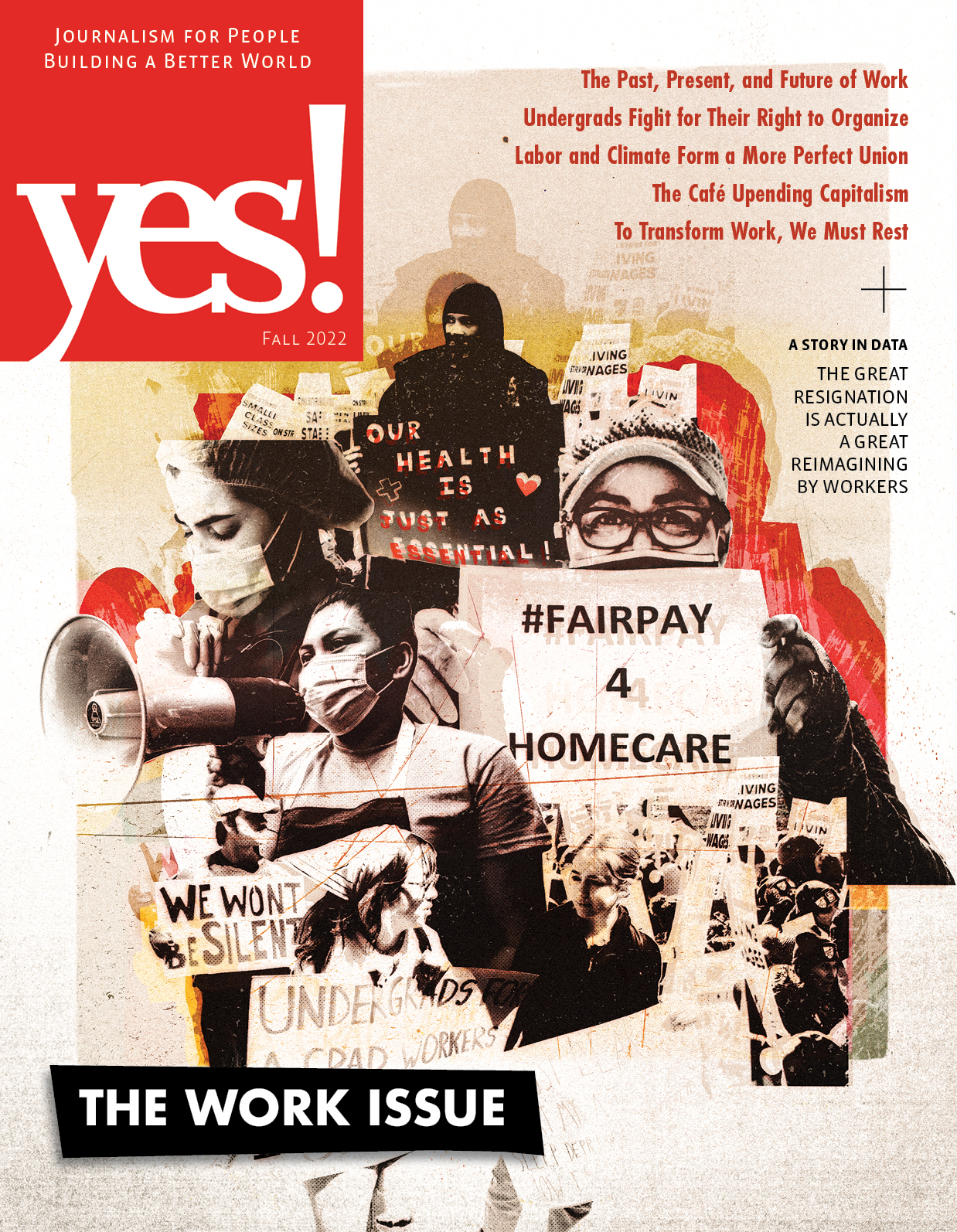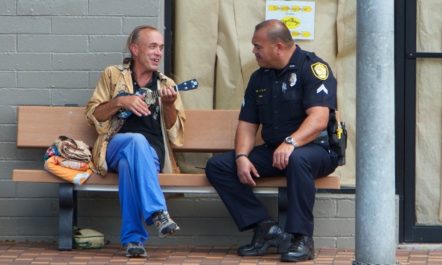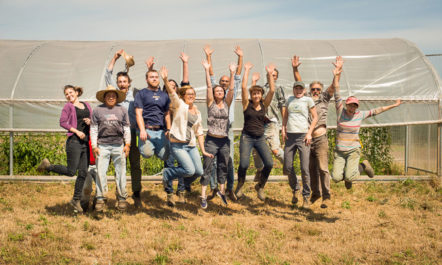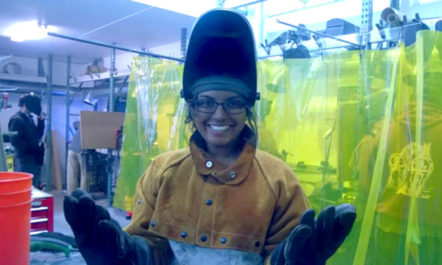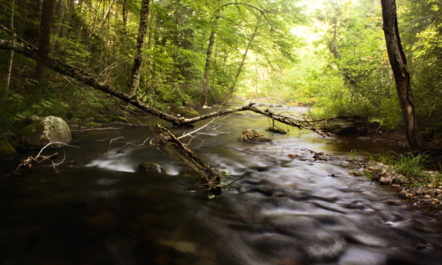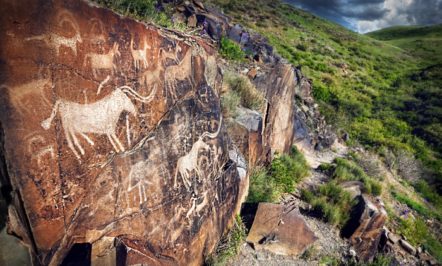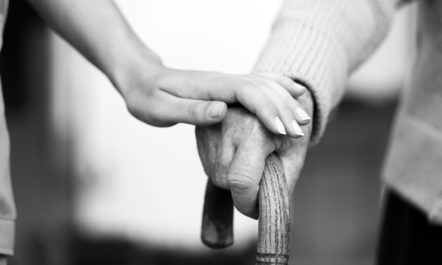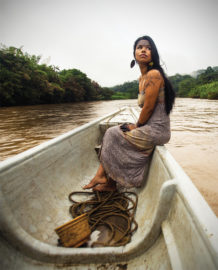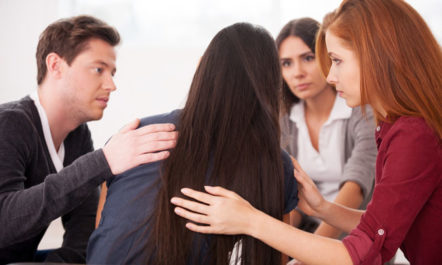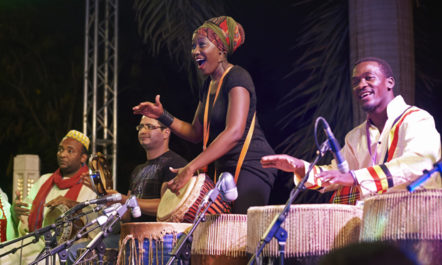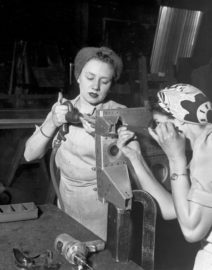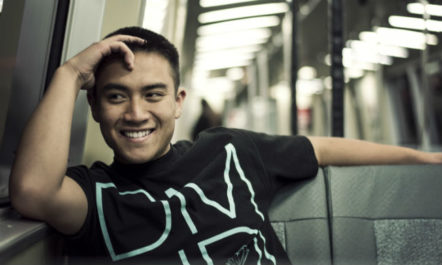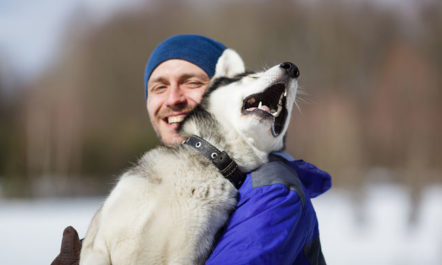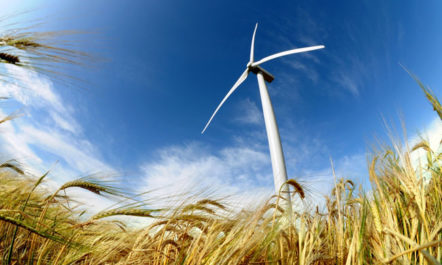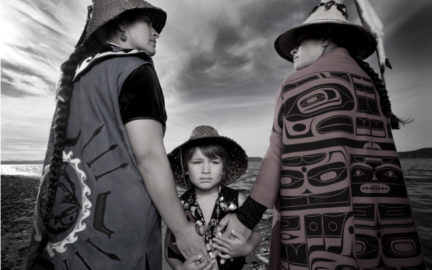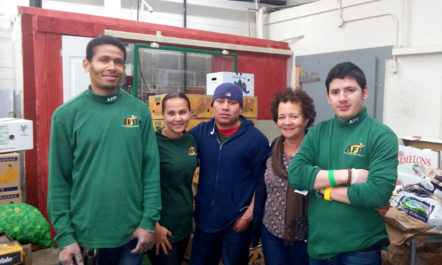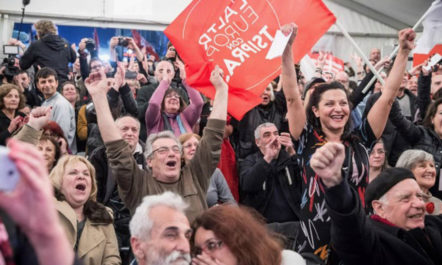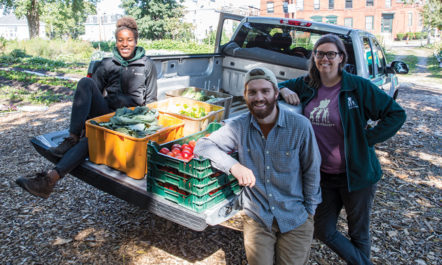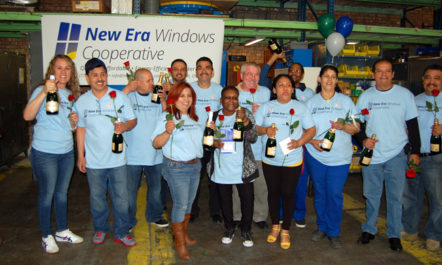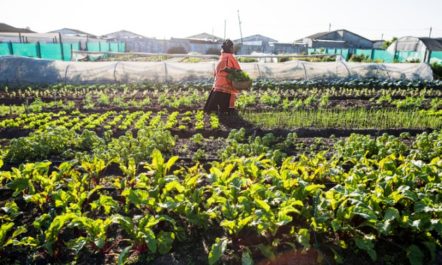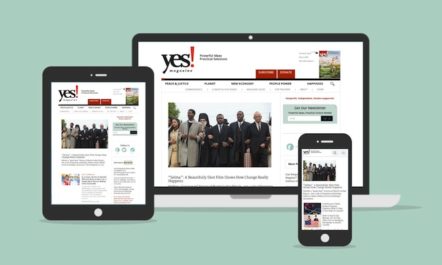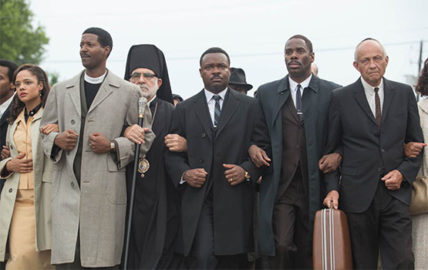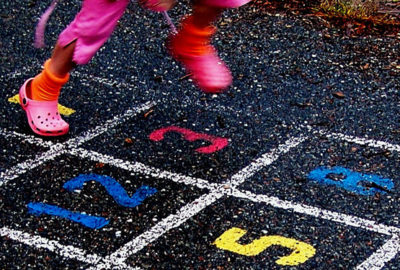How is it that so many of today’s police officers have come to resemble—in appearance, weaponry, and tactics—infantrymen in the U.S. military?
This co-op south of Portland wants to strengthen the local food system by helping local farmers cooperate instead of compete with one another.
At feminist hackerspaces, members are less interested in digital trespassing than in developing a safe community for experimenting, creating, and collaborating.
More and more people have come to understand that behaving as if they hold all rights to Earth’s bounty amounts to an eighth deadly sin.
The idea of stewardship is too small. It’s not that we need to take care of Earth—it’s Earth that takes care of us.
We need to shift the stories we tell ourselves about the value of elders, the care they need, and later life itself.
The people of Sarayaku are a leading force in 21st century indigenous resistance, engaging the western world politically, legally, and philosophically.
Fifteen years ago, the Portuguese had one of the worst drug problems in Europe. So they decriminalized drugs, took money out of prisons, put it into holistic rehabilitation, and found that human connection is the antidote to addiction.
The Nile Project is made up of musicians from different countries, musical genres, and traditions. Their purpose? To promote cooperation and cultural understanding as the diverse peoples of the Nile face threats from water scarcity and climate change.
Before meeting Geraldine, I’d assumed that most of the women from the 1940s were unaware of how capable they were. I was wrong.
There is something about listening to music, or playing it with other people, that makes you feel connected to those around you. Even science says so.
Buses, trains, bikes, and walking represent more than an efficient means of getting from one place to another. They move us toward a brighter future because of the many social and economic benefits they foster.
After 30 years, the practice of paying every resident—including children—at least $1,000 has made Alaska one of the least unequal states in America. Here's what the rest of us can learn.
In this red state, publicly owned utilities provide electricity to all 1.8 million people. Here's how Nebraska took its energy out of corporate hands and made it affordable for everyday residents.
Three years ago, Matika Wilbur set out on an ambitious undertaking: a vast road trip across America to photograph members of all 562 of America’s federally-recognized tribes.
The banking system makes it tough for local businesses to get their hands on startup money. But creative entrepreneurs are finding solutions.
There are plenty of lessons to be taken from Syriza’s victory and the rise to power of Spain's Podemos party, but striving to speak to people rather than politics might be chief among them.
Community land trusts create housing that is permanently affordable. And they also help new city farmers get land.
Alternative business models such as worker-owned cooperatives are gaining ground, proving that a more just and sustainable future is possible.
Creator of Master Cooks Corps train-the-trainer program Chef Nadine Nelson says White people in the food movement should ask themselves: What are you doing to hold yourself accountable to people of color?
We’ve redesigned our site to be mobile-friendly and more enjoyable to read with you, our loyal readers, in mind.
Neither a “great man” history of Martin Luther King Jr., nor a tale of forgotten underdogs, Selma is about skilled activists building a movement.
What do Shakespeare’s plays tell us about how to run classrooms in an unequal society?
In California and Ohio, two city governments are entrusting their citizens with budgeting and rewarding banks for valuing local communities.
An app that combines the affordability of ride sharing with the reliability of taxis. Playgrounds built as sponges for reusable greywater. From Finland to California, the cities of the future are here.
Help Fund Powerful Stories to Light the Way Forward
Donate to YES! today.
